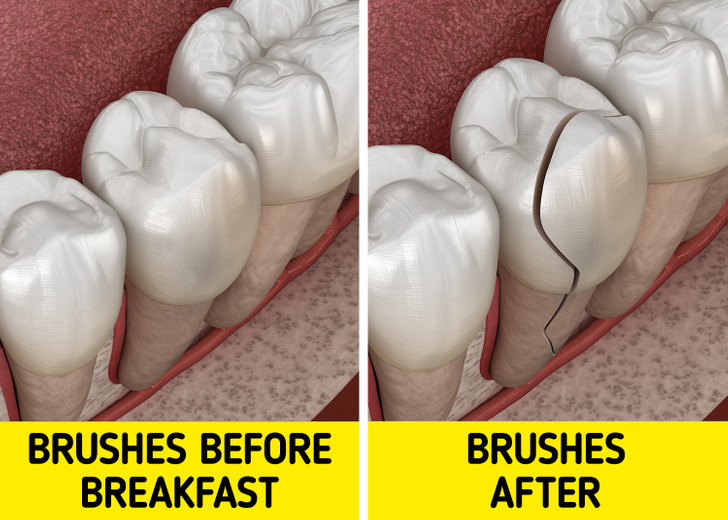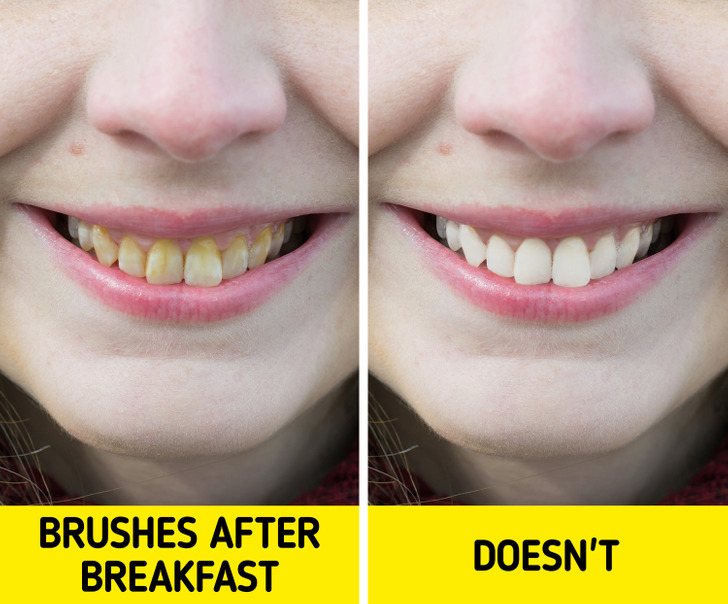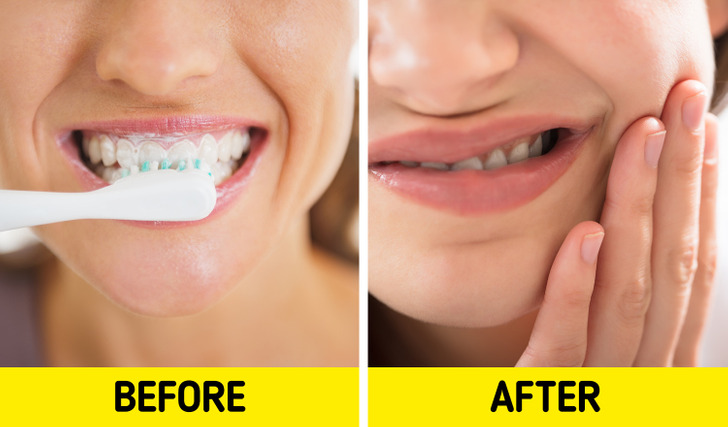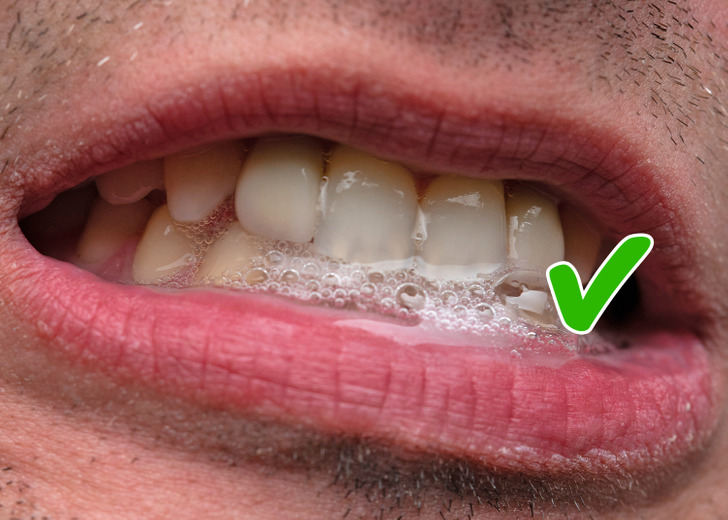Maintaining optimal oral health is essential, but timing matters—especially when it comes to brushing your teeth. While many people believe brushing after breakfast is a must, recent insights reveal that it might not be the best idea. Brushing immediately after eating, particularly after consuming acidic foods and beverages, can lead to enamel erosion, discoloration, and increased tooth sensitivity. In this article, we explore why it’s better not to brush your teeth after breakfast and how adjusting your oral hygiene routine can enhance your overall dental health. This comprehensive guide covers potential risks, alternative routines, and the science behind saliva’s role in protecting your teeth.
Should I Brush My Teeth Before or After Breakfast?
Potential Damage to Enamel: Why Brushing After Breakfast May Harm Your Teeth

Brushing your teeth immediately after breakfast can actually damage your enamel—the protective outer layer of your teeth. Many breakfast foods, especially citrus fruits, juices, and other acidic items, lower the pH level in your mouth temporarily. This acidic environment softens the enamel, making it more vulnerable to abrasion from your toothbrush.
Research indicates that brushing during this vulnerable period can accelerate enamel erosion, leading to increased tooth sensitivity and a higher risk of cavities. According to the American Dental Association (ADA), enamel erosion is a significant factor in dental decay. The friction from your toothbrush on softened enamel can cause microscopic scratches that, over time, result in a dull, worn appearance and compromised tooth structure.
By waiting at least 30 minutes after eating, you allow your saliva to neutralize the acids in your mouth and re-harden the enamel. This simple adjustment not only preserves your enamel but also ensures that your brushing is more effective and less damaging.
Impact on Teeth Color and Whitening: How Timing Affects Your Smile

The timing of your brushing routine can also influence the natural color of your teeth. Breakfast foods, especially those with strong pigments like coffee, tea, or berries, can temporarily stain your teeth. Brushing too soon after consuming these items may actually embed the pigments deeper into the enamel, leading to a more pronounced discoloration over time.
A study published in the Journal of Esthetic and Restorative Dentistry emphasizes the importance of waiting before brushing to let saliva act as a natural cleanser. Saliva helps wash away residual food particles and pigments, reducing the risk of permanent staining. Brushing immediately after breakfast, while your enamel is still in a softened state, can result in a less effective stain removal and a duller smile.
For optimal teeth whitening and color retention, dental professionals recommend waiting after meals to brush your teeth. This delay allows the natural remineralization process to take place, which not only preserves your enamel but also maintains the natural brightness of your smile.
Increased Tooth Sensitivity: The Hidden Risk of Post-Breakfast Brushing

Tooth sensitivity is a common complaint among those who brush too soon after eating. When enamel is softened by acidic foods and beverages, the protective barrier over the nerve endings in your teeth is compromised. This can lead to heightened sensitivity to hot, cold, or sweet stimuli.
Dental experts warn that repeated exposure to this softened enamel can result in long-term sensitivity issues. The Mayo Clinic notes that tooth sensitivity is often linked to enamel loss, which exposes the dentin—a porous tissue that contains microscopic tubules connected to the nerve endings. As these tubules become exposed, patients may experience sharp pain or discomfort with everyday activities like sipping a hot drink or enjoying a cold dessert.
By modifying your oral care routine and avoiding brushing immediately after breakfast, you protect your enamel from excessive wear. Waiting allows your saliva to remineralize your teeth, thereby reducing the risk of developing painful sensitivity.
Enhanced Oral Health with Pre-Breakfast Brushing: Boosting Saliva Production

One effective alternative to brushing after breakfast is to brush your teeth before eating. Brushing before breakfast has several benefits, the most notable being an increase in saliva production. Saliva is a natural defender of your oral health—it neutralizes acids, washes away food debris, and contains minerals that help repair and strengthen enamel.
The process of brushing stimulates saliva production, which plays a crucial role in maintaining the balance of your mouth’s pH level. The National Institutes of Health (NIH) explains that saliva acts as the body’s first line of defense against bacteria and harmful acids. With increased saliva flow, your mouth is better equipped to handle the acidic effects of breakfast foods and beverages, thereby protecting your teeth from potential damage.
Furthermore, brushing before breakfast ensures that you start the day with a clean mouth, reducing the risk of bacteria buildup during your meal. This proactive approach not only safeguards your enamel but also promotes fresher breath throughout the day.
Additional Benefits of Brushing Before Breakfast
Beyond protecting your enamel and boosting saliva production, brushing before breakfast offers other notable benefits. These include improved overall oral hygiene, enhanced taste sensation, and even a better mood throughout the day. Let’s explore these advantages in detail:
Improved Oral Hygiene and Reduced Bacterial Growth
Brushing before breakfast helps remove the overnight accumulation of plaque and bacteria. During sleep, saliva production decreases, allowing bacteria to multiply on your teeth and gums. Starting your day with a thorough brushing clears these harmful microorganisms, reducing the risk of gum disease and tooth decay.
A study by the Journal of Periodontology suggests that individuals who maintain rigorous oral hygiene routines have significantly lower rates of periodontal disease. By brushing before breakfast, you not only remove bacteria but also create a cleaner surface for your saliva to work its protective magic once you eat.
Enhanced Taste Sensation and Enjoyment of Food
When you brush your teeth before breakfast, you clear away the residue of nighttime bacteria, which can dull your taste buds. A clean mouth allows you to better appreciate the flavors of your food, whether it’s the tang of a citrus fruit or the rich aroma of a hot coffee.
Improved taste sensation can also contribute to a more satisfying breakfast experience, which is crucial for setting a positive tone for the rest of your day. With enhanced flavors, you may find yourself more mindful about the quality and nutritional value of the food you consume.
Boosted Mood and Increased Energy Levels
Starting your day with a clean, fresh mouth can have a positive psychological impact. The act of brushing before breakfast not only helps you wake up but also instills a sense of discipline and readiness. This can translate into a better mood and increased energy levels, contributing to a more productive day.
While the link between oral hygiene and mood is indirect, several studies have shown that overall health and personal care routines significantly impact mental well-being. A research article from the Journal of Clinical Periodontology found correlations between good oral hygiene practices and improved self-esteem and mood.
Common Myths About Brushing After Breakfast
Many people are accustomed to the notion that brushing immediately after a meal is the healthiest option. However, this belief often overlooks the delicate balance of your oral environment. Here are some common myths debunked:
Myth: Brushing Right After Eating Removes All Bacteria
While it’s true that brushing removes bacteria, doing so immediately after eating acidic foods can be counterproductive. The acid in your food temporarily softens your enamel, and brushing at this time can cause more harm than good. Instead, waiting 30 minutes allows your saliva to naturally neutralize the acid and harden your enamel, reducing bacterial adherence without damaging your teeth.
Myth: Post-Breakfast Brushing Enhances Freshness
Many assume that brushing after breakfast ensures a fresher mouth throughout the day. However, the benefits of increased saliva production and enamel protection achieved by brushing before eating far outweigh the temporary freshness achieved by post-meal brushing. The natural cleansing action of saliva continues to protect your mouth long after your meal.
Expert Recommendations and Scientific Insights
Dental professionals and researchers widely agree that the timing of brushing can have a significant impact on oral health. The American Dental Association and Mayo Clinic both advocate for brushing before meals—especially breakfast—to maximize the natural benefits of saliva and protect enamel from acidic damage.
Scientific literature supports this practice as well. Numerous studies have documented that delaying brushing after consuming acidic foods prevents unnecessary wear on the enamel, which is crucial for long-term dental health. By aligning your brushing routine with these recommendations, you’re investing in a healthier smile and reducing the risk of common dental issues.
Practical Tips for an Optimized Oral Hygiene Routine
Implementing an effective oral hygiene routine doesn’t have to be complicated. Here are some practical tips to help you get the most out of your morning routine while protecting your teeth:
Brush Before Breakfast: Make it a habit to brush your teeth as soon as you wake up. This clears away overnight bacteria and prepares your mouth for breakfast.
Wait Before Brushing After Meals: If you prefer to brush after eating, wait at least 30 minutes to allow saliva to neutralize acids and strengthen enamel.
Rinse with Water: After breakfast, consider rinsing your mouth with water. This helps remove food particles and reduces acid levels without the abrasive action of brushing.
Use a Soft-Bristled Toothbrush: A soft-bristled brush minimizes abrasion on your enamel, especially when it’s in a softened state.
Incorporate Fluoride Toothpaste: Fluoride can help remineralize enamel and protect against decay. Ensure that your toothpaste contains this essential ingredient.
Schedule Regular Dental Check-Ups: Regular visits to your dentist can help monitor your enamel health and address any concerns early on.
External Resources for Further Reading
For additional insights and expert advice on maintaining optimal oral health, check out these reputable sources:
- American Dental Association (ADA) – Offers comprehensive guidance on dental care and oral hygiene practices.
- Mayo Clinic – Provides evidence-based articles on oral health, including tips for preventing enamel erosion.
- National Institutes of Health (NIH) – Features research and publications related to oral health and dental science.
- Journal of Clinical Periodontology – A resource for scientific studies on periodontal health and oral hygiene practices.
Conclusion: Optimize Your Morning Routine for a Healthier Smile
Brushing your teeth is undoubtedly a cornerstone of good oral hygiene, but timing is everything. Brushing immediately after breakfast can expose your enamel to damage from acidic foods, lead to discoloration, and increase tooth sensitivity. By shifting your routine to brush before breakfast, you harness the protective power of saliva, reduce the risk of enamel erosion, and maintain a brighter, healthier smile.
Adopting this simple change can have long-term benefits for your dental health. Not only will you protect your teeth from the harsh effects of acidic foods, but you’ll also improve overall oral hygiene by reducing bacterial buildup and enhancing your natural defense mechanisms. With proper oral care, including a well-timed brushing routine, you can enjoy the benefits of improved enamel strength, reduced sensitivity, and a naturally whiter smile.
In a world where convenience often trumps health, taking a few extra minutes in the morning to adjust your routine can yield significant rewards. Empower yourself with knowledge and make informed decisions about your oral hygiene. With expert recommendations and scientific insights supporting the benefits of pre-breakfast brushing, you can confidently embrace a routine that preserves your smile for years to come.
Ultimately, your oral health is a reflection of your overall well-being. A small adjustment to your morning routine—brushing before breakfast—can protect your enamel, enhance your teeth’s natural color, and reduce sensitivity, all while boosting saliva production to safeguard against harmful acids. Make the smart choice for your dental health today and enjoy the lasting benefits of a carefully optimized oral hygiene routine.
Preview photo credit Shutterstock.com









